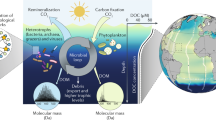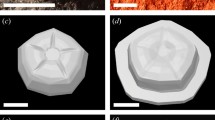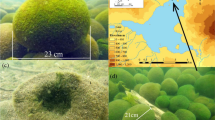Abstract
SOME years ago, I described the formation of red 'water-bloom' in the seas round Cape Peninsular, by myriads of the ciliate Mesodinium rubrum Lohmann1. I had been unable to find references (in the literature available on the spot) to ciliates as a cause of this phenomenon, though 'water-bloom' caused by various other micro-organisms was well known in many localities. A reply from Prof. O. Paulsen2 showed that formation of red 'water-bloom' due to Mesodinium had been seen by him at Iceland thirty years earlier. The Danish publication was out of my reach at the time, but I ought not to have missed the astoundingly accurate, detailed description of Mesodinium forming red water made by Darwin3 some fifty years earlier still, before Mesodinium had in fact been named. No one who has examined swarming Mesodinium alive could have any doubt as to the identity of the organisms described by Darwin, and it would be very hard to improve his verbal description.
This is a preview of subscription content, access via your institution
Access options
Subscribe to this journal
Receive 51 print issues and online access
$199.00 per year
only $3.90 per issue
Buy this article
- Purchase on Springer Link
- Instant access to full article PDF
Prices may be subject to local taxes which are calculated during checkout
Similar content being viewed by others
Author information
Authors and Affiliations
Rights and permissions
About this article
Cite this article
HART, T. Darwin and 'Water-Bloom'. Nature 152, 661–662 (1943). https://doi.org/10.1038/152661b0
Issue Date:
DOI: https://doi.org/10.1038/152661b0
Comments
By submitting a comment you agree to abide by our Terms and Community Guidelines. If you find something abusive or that does not comply with our terms or guidelines please flag it as inappropriate.



